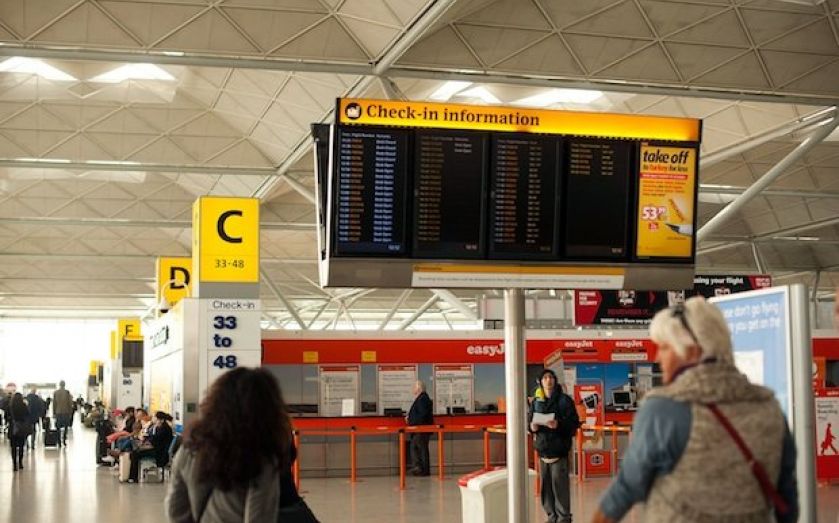The airport shortlist is out: Politicians must now promise to let Britain grow

THE INTERIM report of Sir Howard Davies’s Airports Commission, released yesterday, is the perfect wake-up call to our political leaders. Expanding London’s airports is critical to Britain’s future economic well-being. And it can’t wait any longer.
Davies’s two key findings are spot on. First, Britain doesn’t have enough runways to meet the demands that will be placed on them over the coming years. Secondly, this crisis is the result of successive governments failing to take critical decisions on where to build new airport capacity. The message is clear. The time has come for politicians to take decisive action. Doing nothing is not an option.
It is right at this stage, however, to leave Davies to decide where to build more runway capacity. The key point is that the Commission accepts it must be built somewhere. Otherwise, as it correctly points out, the country will pay a huge economic price.
The facts speak for themselves. Increasing Britain’s international connectivity by improving our air links, and boosting trade and investment go hand-in-hand. The more daily flight connections we have, the more trade is generated. To illustrate that point, 20 times more trade is done with countries with which Britain has a direct air link than those where there is no such link.
Against this background, recent trends are alarming. Since 1992, Heathrow’s capacity has grown by 53 per cent. Over the same period, Frankfurt’s has grown by 84 per cent, Paris Charles de Gaulle’s by 142 per cent and Amsterdam’s Schiphol by 160 per cent. While Heathrow has two runways, Schiphol has six and Charles de Gaulle has four. There hasn’t been a new full-length runway built in Britain south of Manchester since the Second World War.
The capacity shortage that these shocking statistics highlight threatens to hamper the UK’s success as a global business centre, and thus our ability to forge a lasting economic recovery.
The situation in relation to China, which I visited recently as part of the Prime Minister’s trade delegation, shows clearly how serious the problem has become. I strongly support the government’s campaign to boost trade and encourage new investment from growth economies like China. However, we should be under no illusions. The UK is already at a competitive disadvantage against our key European neighbours.
Heathrow has between three and five flights a day to two cities in mainland China – Beijing and Shanghai. Paris, meanwhile, has 11 daily flights to four destinations, and Frankfurt has 10 daily flights to six.
And the position is set to worsen. China is building vast numbers of new airports. Where will all the new flights taking off from these airports land? Will they fly to London? Or will they choose other European aviation hubs with far more capacity and room for growth? I fear that the answer is obvious. Likewise, will Britain get a strong share of inward investment projects from China and the other growth economies, or will they increasingly go to Germany, France or Holland, which are better connected to them?
Unfortunately, the picture in relation to China is by no means unusual. It applies just as much to key emerging markets in Asia and Latin America. The brutal truth is that this position is not sustainable. To secure our long-term economic well-being, Britain has to be serious about getting ahead in the global race, boosting trade and generating much-needed new jobs. That, in turn, obliges us to get serious about modernising and expanding our airport infrastructure.
The first step down that road is to look at flights in a very different way. A plane taking off from London and landing at a new destination in China or a key city in one of the other major emerging economies must not be seen merely as an air link. It’s a trade link, an investment link, and a jobs and growth link.
And this is where the politicians come in. The British people urgently need our MPs to put the country’s long-term national interest ahead of short-term politics.
That is why I am supporting the Let Britain Fly campaign, along with well over 100 fellow UK business leaders. To us, what matters above everything else is for the UK to secure our future position in the international marketplace. To achieve this, airport capacity must be increased urgently.
Party leaders must promise that their 2015 election manifestos will include a commitment to be guided by the Davies Commission’s final conclusions. Anything less would be to sell the economy, indeed the country as a whole, badly short.
Philip Dilley is group chairman of Arup, and a signatory to the Let Britain Fly campaign.